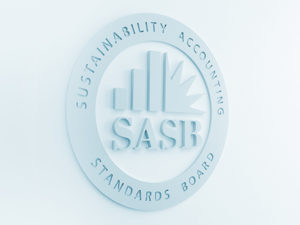
Kelli Okuji Wilson Analyst, Project Lead – Human Capital Research Project
SASB’s Human Capital Research Project will identify key human capital management issues to set up potential standard-setting activities
In September 2019, the SASB Standards Board approved the Human Capital Research Project as a foundational step towards addressing emerging issues in human capital management. While human capital is one of the most common issues across SASB’s 77 industry standards, incorporating emerging issues, evidence of financial materiality, and evolving market views into SASB’s standard-setting process is paramount for SASB and its commitment to high-quality, timely standards.
The research project is part of SASB’s launch of its project-based model, which enables SASB to more agilely analyse and address key issues in the SASB standards. Since human capital is an issue that cuts across many industries, the human capital research project’s objective is to create a market-informed and evidenced-based framework that identifies the financially material impacts of relevant human capital management issues, which will enable the assessment of these themes on an industry-by-industry basis. The framework will form the basis of the SASB Research team’s recommendations to the Standards Board regarding modifications to the human capital sustainability dimension. Some potential issues for exploration include, but are not limited to, the definition of employee (full-time, part-time, contractor, etc.), employee well-being, further exploration of the financial materiality of diversity and inclusion issues, and the impact of technology on workforce skills.
Emerging and evolving human capital issues are of growing importance to investors and companies
Human capital has long been known as a cost to companies, but more recently, has been recognised as an asset critical to a firm’s long-term value creation. With the rise of technology and shifts in societal values, human capital and the management of this resource have emerged as increasingly important issues to both companies and investors. We discussed the emerging focus on human capital in the financial markets in our recent blog, “Spotlight on Human Capital Has Investors Attention”.
Subsequently, the SEC released a proposal on Modernization of Regulation S-K, Items 101, 103 and 105 which, among other topics, proposed potentially including human capital resources as a disclosure topic. On October 17, 2019, SASB submitted a letter of comment, focusing its recommendations exclusively on the SEC taking a principles-based approach versus a rules-based approach to human capital disclosures in the 10-K filing. SASB’s position on the proposal urged the SEC to be clearer in the rule that boilerplate-type disclosures would not fulfil the rule requirement. SASB also noted that in order to promote consistency and comparability in the disclosures, the SEC should, in its final rulemaking release, either strongly encourage or require companies to use a private-sector disclosure framework. SASB believes that its framework, developed through due process, would be particularly useful to companies in fulfilling the rule requirements and the SEC should refer companies to SASB as an acceptable framework for disclosure in its rulemaking release.
Human capital in the SASB standards could benefit from further research for possible expansion
While human capital is well-represented throughout SASB’s 77 industries, emerging and evolving issues on the theme of human capital have encouraged SASB to escalate research and market engagement focused on the issue. Currently, SASB standards address three relevant, financially material issues related to human capital management (in industries where sufficient evidence of financial impact and investor interest has been demonstrated): employee health and safety; employee diversity, inclusion, and engagement; and labour practices. However, as firms become increasingly exposed to technological innovation combined with broader macroeconomic trends of shifting demographics and changing societal values toward human capital, the reevaluation of the standards in context of these evolving and emerging trends is increasingly important.
Kelli Okuji Wilson serves as the SASB staff Project Lead for the human capital research project. Please contact SASB for more information on the research project.

